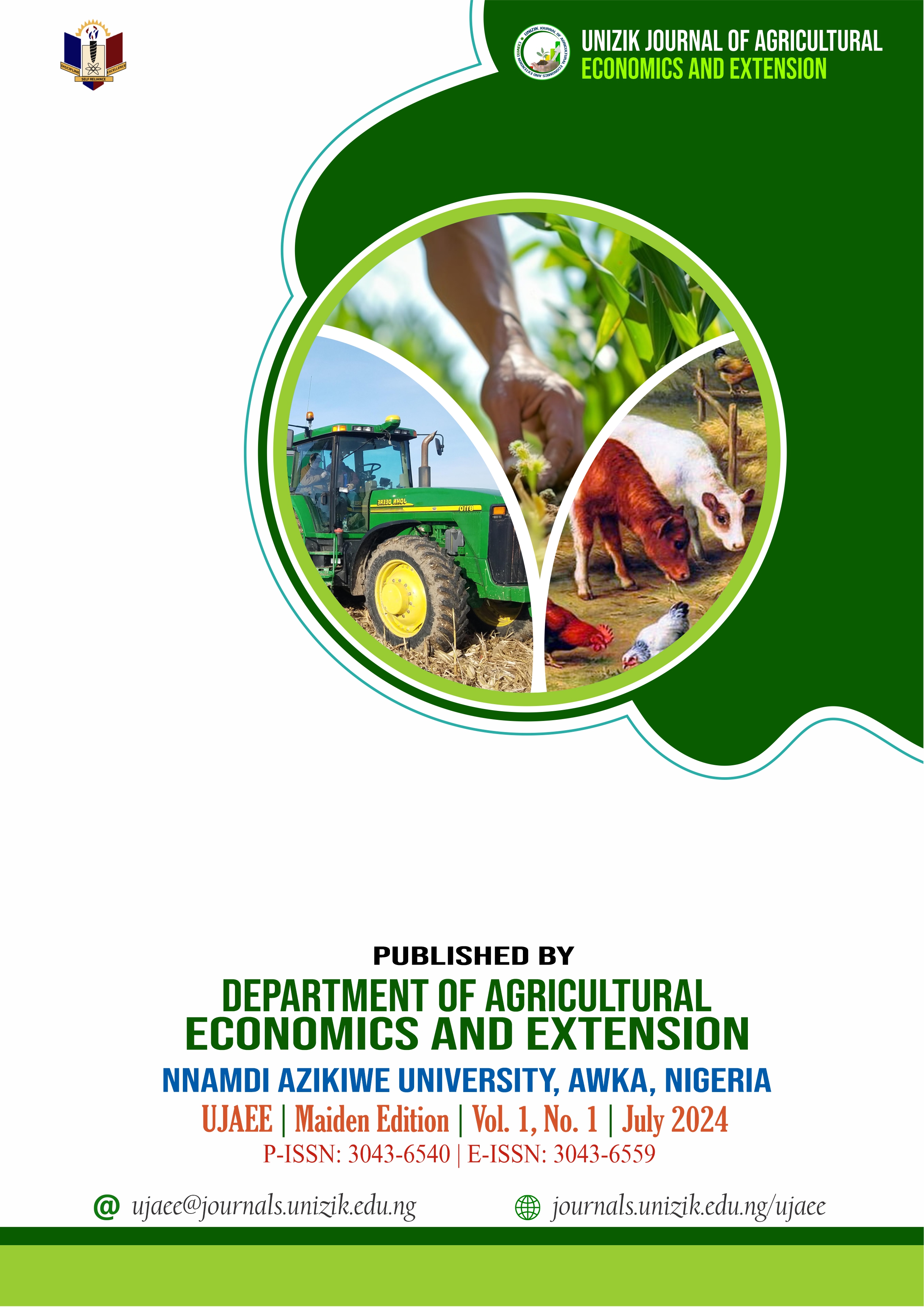Effects of Climate-Smart Agricultural Practices on Food Security Situation of Farmers in Nasarawa State, Nigeria
Keywords:
Agriculture, Climate-smart, Farmers, Food security, PracticesAbstract
This research sought to find the ‘Effects of Climate-Smart Agricultural Practices on Food Security Situation of Farmers in Nasarawa State’. A multistage sampling approach was used to select 222 farmers. Primary data were collected using a questionnaire. Data were analyzed using principal component analysis, household dietary diversity score, Poisson regression analysis and descriptive statistics. Principal component analysis grouped climate-smart agricultural practices into 5 components namely; comprehensive field management (42.0%), on-farm risk reduction (16.0%), crop/livestock management (13.0%), agroforestry (9.0%) and soil conservation practices (20.0%). A household dietary diversity score of 2.7 was obtained. Results of regression analysis showed that participation in non-agricultural activities, household size, valuable farm assets, comprehensive field management, on-farm risk reduction and crop/livestock management were significant. The absence of information (36.0%) and capital (28.8%) were the main challenges to the use of the technology. The research concludes that climate-smart agricultural practices have the potential to improve the food security situation of the farmers.
Downloads
Published
Issue
Section
License
Copyright (c) 2024 UNIZIK Journal of Agricultural Economics and Extension

This work is licensed under a Creative Commons Attribution-NonCommercial-NoDerivatives 4.0 International License.




